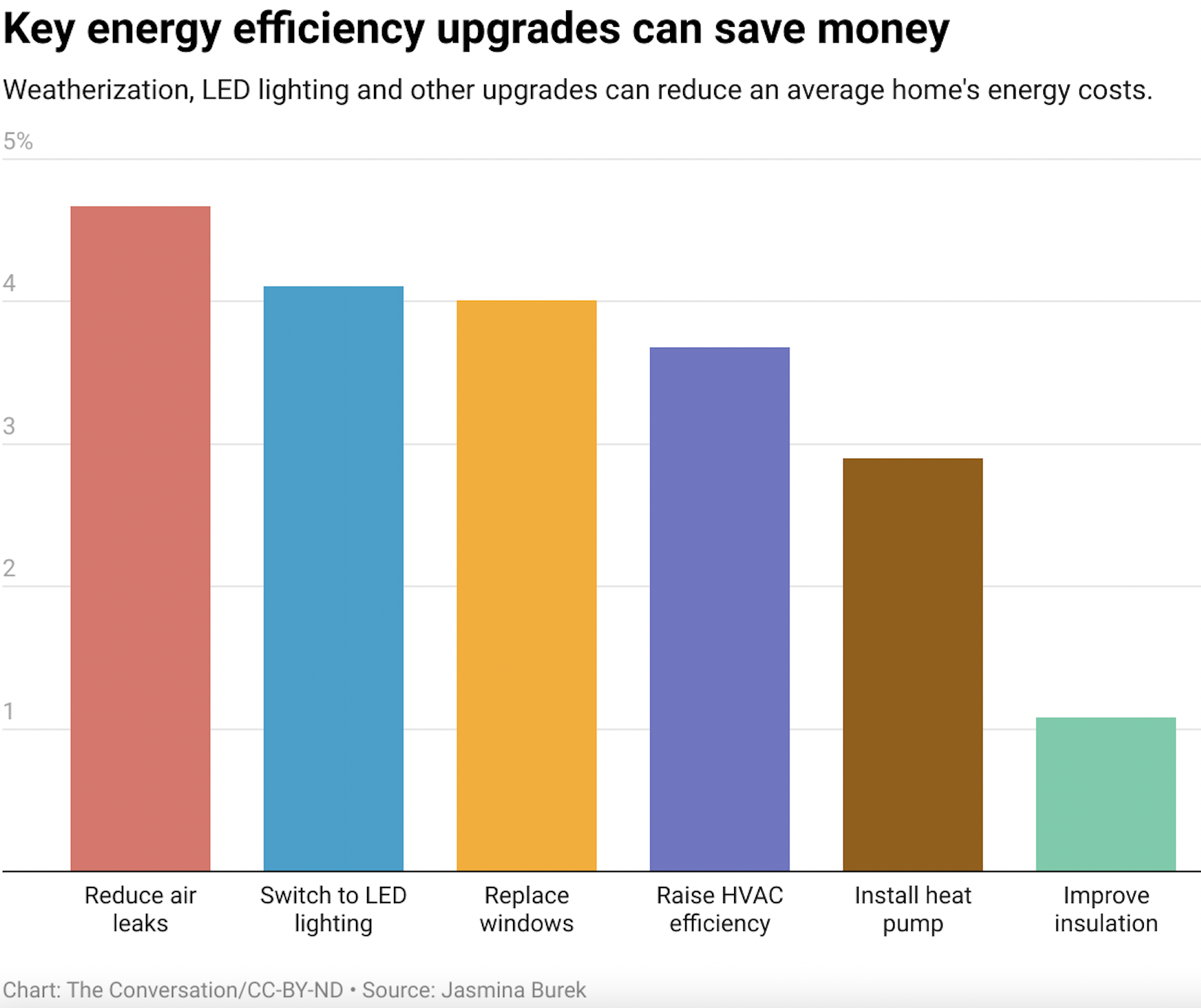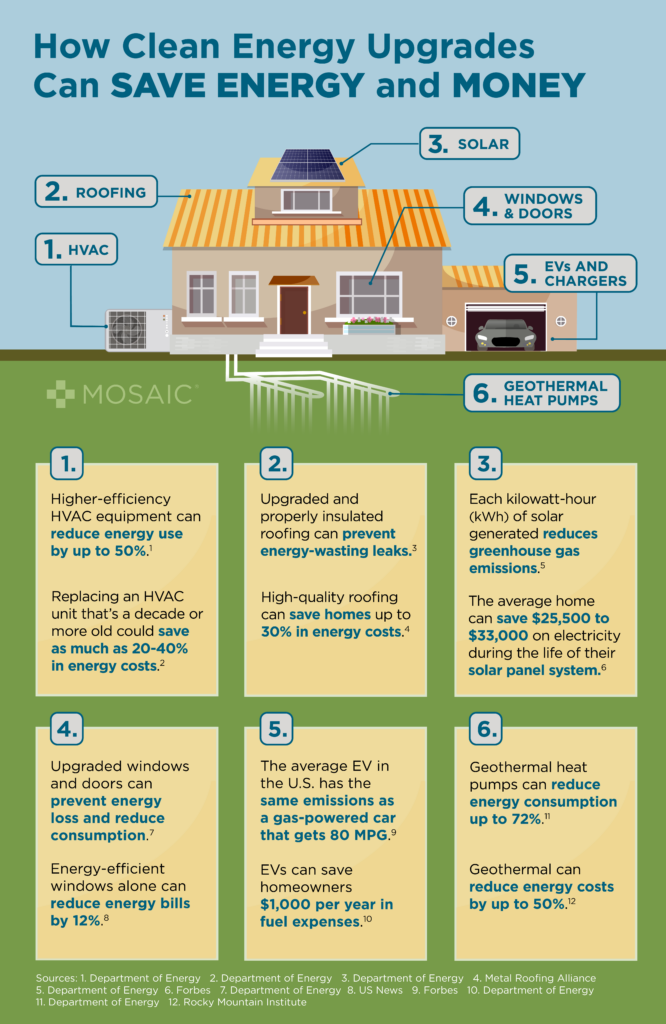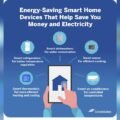How Energy Efficiency Upgrades Can Save? Energy efficiency upgrades can save you money and reduce energy use. These upgrades can also help protect the environment.
Also Read
Saving money and energy is more important than ever. Many people are searching for ways to cut costs and lower their carbon footprints. Energy efficiency upgrades offer a great solution. By making small changes to your home or business, you can see significant savings.
These upgrades can range from simple fixes to larger investments. Each improvement contributes to a more sustainable future. In this blog post, we will explore how these upgrades can benefit you. Discover how you can start saving today while making a positive impact on the planet.

Credit: www.entergynewsroom.com
Importance Of Energy Efficiency
Energy efficiency is crucial for many reasons. It helps save money, protect the environment, and improve quality of life. Making your home energy-efficient can cut utility bills and reduce your carbon footprint. It also enhances comfort and boosts property value.
Reducing Carbon Footprint
Reducing energy consumption lowers greenhouse gas emissions. These emissions contribute to climate change. By using less energy, you help slow global warming. Energy-efficient homes use less fossil fuel. This means fewer pollutants are released into the air. Cleaner air benefits everyone’s health.
Enhancing Home Comfort
Energy efficiency upgrades can improve home comfort. Proper insulation keeps your home warm in winter and cool in summer. High-efficiency windows block drafts and reduce noise. Energy-efficient appliances produce less heat. This makes your home more comfortable year-round.

Credit: energizepseg.com
Cost Savings Through Efficiency
Upgrading your home with energy-efficient solutions not only helps the environment but also results in significant cost savings. These upgrades can lead to lower utility bills and offer opportunities for tax credits and rebates. Let’s explore how you can save money through energy efficiency.
Lower Utility Bills
One of the most immediate benefits of energy-efficient upgrades is lower utility bills. Using less energy means spending less on heating, cooling, and electricity. Simple changes like installing LED bulbs or adding insulation can show noticeable savings on your monthly utility statements.
Consider the following energy-efficient upgrades and their potential impact:
| Upgrade | Potential Savings |
|---|---|
| LED Lighting | Up to 80% savings on lighting costs |
| Smart Thermostats | Up to 15% savings on heating and cooling |
| Energy-Efficient Windows | Up to 25% savings on heating and cooling |
Tax Credits And Rebates
Many governments offer tax credits and rebates for making energy-efficient upgrades. These incentives help reduce the initial cost of improvements. For example, you might receive a rebate for installing solar panels or upgrading to energy-efficient appliances.
Below are some common energy-efficient upgrades that often qualify for tax credits or rebates:
- Solar Panels
- Energy Star Appliances
- High-Efficiency HVAC Systems
Check with your local government or utility company to see which incentives are available in your area. Taking advantage of these programs can make energy-efficient upgrades more affordable and help you save even more money in the long run.
Popular Energy Efficiency Upgrades
Energy efficiency upgrades can help save money and protect the environment. Many homeowners seek ways to reduce their energy bills and carbon footprint. Popular energy efficiency upgrades can make a big difference. Let’s explore some common options.
Insulation And Sealing
Insulation and sealing are essential for maintaining indoor temperature. Proper insulation keeps your home warm in winter and cool in summer, reducing the need for heating and cooling systems to work overtime.
Seal gaps and cracks in windows, doors, and walls to prevent air leaks. Use weatherstripping and caulking to seal these gaps. A well-insulated home saves energy and money year-round.
Energy-efficient Appliances
Energy-efficient appliances consume less power than traditional models. Look for appliances with the Energy Star label. These models meet strict energy-saving standards set by the government. Upgrade your refrigerator, dishwasher, and washing machine for better efficiency.
Energy-efficient lighting, like LED bulbs, also reduces energy consumption. Switching to energy-efficient appliances leads to significant savings on utility bills.
Upgrading Lighting Systems
Upgrading lighting systems can significantly reduce energy costs. It also enhances the quality of light in your home or office. Modern lighting options offer better efficiency and longer lifespans. Let’s explore the benefits of upgrading your lighting systems.
Led Vs. Traditional Bulbs
LED bulbs consume less energy than traditional bulbs. They last longer, reducing the need for frequent replacements.
Traditional bulbs, like incandescent, use more power and generate more heat. This heat can increase cooling costs in warmer months. LED bulbs are more durable and environmentally friendly. They contain no hazardous materials and are recyclable. Switching to LEDs can save money over time.
Smart Lighting Solutions
Smart lighting systems offer even greater energy savings. These systems allow you to control lights remotely. You can schedule lights to turn on or off at specific times. Some smart lights adjust based on natural light levels. This reduces unnecessary energy use.
Smart lighting also adds convenience and security to your home. You can control your lights from your smartphone, no matter where you are. Investing in smart lighting solutions can lead to significant energy savings.
Heating And Cooling Systems
Heating and cooling systems are essential for maintaining a comfortable home. Upgrading to energy-efficient systems can save money and reduce energy consumption. This section explores two main upgrades: high-efficiency HVAC systems and programmable thermostats.
High-efficiency Hvac Systems
High-efficiency HVAC systems use less energy to heat and cool your home. They are designed with advanced technology that improves efficiency. These systems can save you up to 20% on energy bills.
Benefits of high-efficiency HVAC systems include:
- Lower energy bills: Reduced energy consumption means lower utility bills.
- Improved comfort: Better temperature control and air quality.
- Environmental impact: Reduced carbon footprint helps the environment.
Consider the following when choosing a high-efficiency HVAC system:
- Check the SEER (Seasonal Energy Efficiency Ratio) rating. Higher ratings mean better efficiency.
- Look for ENERGY STAR certification. Certified systems meet strict energy efficiency guidelines.
- Consult with a professional to ensure the system suits your home’s size and needs.
Programmable Thermostats
Programmable thermostats allow you to set heating and cooling schedules. This helps save energy when you are not at home. Some models can even learn your habits and adjust settings automatically.
Advantages of using programmable thermostats:
- Cost savings: Reducing energy use when not needed lowers utility bills.
- Convenience: Set schedules to fit your lifestyle. No need to adjust manually.
- Remote access: Control your thermostat from your smartphone. Adjust settings from anywhere.
| Feature | Benefit |
|---|---|
| Scheduling | Set different temperatures for different times. |
| Learning mode | Automatically adjusts based on usage patterns. |
| Remote control | Adjust settings from anywhere using an app. |
Renewable Energy Options
Adopting renewable energy options can significantly reduce your energy bills. These upgrades not only save money but also benefit the environment. The most popular renewable energy sources are solar panels and wind turbines. Both offer unique advantages and can be tailored to your specific needs.
Solar Panels
Solar panels capture sunlight and convert it into electricity. This electricity can power your home or business. They are a popular choice for many households.
Here are some key benefits:
- Cost Savings: Reduce or eliminate your electricity bills.
- Environmental Impact: Lower your carbon footprint.
- Low Maintenance: Requires minimal upkeep.
Installing solar panels involves some initial costs. But, they provide long-term savings and energy independence.
Consider these factors before installation:
| Factor | Description |
|---|---|
| Location | Amount of sunlight your area receives. |
| Roof Condition | Ensure your roof can support the panels. |
| Budget | Initial investment and potential savings. |
Wind Turbines
Wind turbines generate electricity by harnessing wind energy. They are suitable for areas with consistent wind.
Advantages of wind turbines:
- Renewable Energy Source: Uses wind, a free and endless resource.
- Space Efficiency: Requires less space than solar panels.
- Scalability: Suitable for both small and large setups.
Before installing wind turbines, consider:
- Wind Speed: Average wind speed in your area.
- Land Space: Available space for installation.
- Zoning Laws: Local regulations and permits.
Wind turbines offer a reliable energy source. They can complement other renewable energy systems like solar panels.
Financing Energy Efficiency
Financing energy efficiency upgrades can seem challenging. But, there are options available to help ease the process. These options make it easier to invest in a more sustainable future. With the right financing, you can start saving on energy costs sooner. Here, we will discuss some popular methods to finance your energy efficiency upgrades.
Loan Programs
Many financial institutions offer loan programs for energy efficiency upgrades. These loans often come with lower interest rates. They are designed to help you invest in energy-saving technologies. Some loans even offer longer repayment terms. This makes the financial burden lighter for homeowners and businesses.
Government-backed loans can also be a good option. Programs like the Energy Efficient Mortgage (EEM) help you finance energy improvements. EEMs can be added to your existing mortgage. This allows you to spread the cost over a longer period.
Energy Performance Contracts
Energy Performance Contracts (EPCs) provide another way to finance upgrades. In an EPC, an energy service company (ESCO) makes the upgrades for you. The cost of these upgrades is paid back through the savings on your energy bills. This means no upfront costs for you.
ESCOs guarantee a certain level of energy savings. If the savings are not met, the ESCO pays the difference. This makes EPCs a low-risk option for financing energy efficiency. It ensures that you will see financial benefits from your upgrades.

Credit: www.canadianmanufacturing.com
Long-term Benefits Of Upgrades
Upgrading your home for energy efficiency might seem costly. But the long-term benefits make it a wise investment. These benefits extend beyond saving on energy bills.
Increase In Property Value
Energy efficiency upgrades can significantly increase your property’s value. Homes with better energy ratings attract more buyers. They are willing to pay more for homes that promise lower utility bills. This means a higher return on investment when you decide to sell.
Consider adding features like:
- Insulated windows
- Energy-efficient appliances
- Improved heating and cooling systems
These features not only save money but also make your home more attractive to potential buyers.
Health And Safety Improvements
Energy-efficient homes are not just cost-effective. They are also healthier and safer. Proper insulation reduces drafts and cold spots, creating a more comfortable living environment. Efficient ventilation systems improve indoor air quality. This reduces the risk of respiratory issues.
Other benefits include:
- Reduced mold and mildew growth
- Consistent indoor temperatures
- Lower risk of fire hazards from old wiring or appliances
These upgrades contribute to a healthier lifestyle for your family.
How Can We Save Energy Efficiently?
Saving energy requires the adoption of simple habits and advanced technologies. Here are some effective strategies:
-
Switch to LED Lighting: LEDs use significantly less energy and last longer than traditional bulbs.
-
Use Smart Thermostats: These devices can optimize heating and cooling. They use your routines to reduce wasted energy.
-
Seal and Insulate Your Home: Proper insulation and sealing gaps around windows and doors can save energy. It will also reduce heating and cooling costs.
-
Unplug Devices When Not in Use: Many electronics consume energy even when turned off. Unplugging them can save a significant amount of energy.
-
Upgrade to Energy-Efficient Appliances: Look for the Energy Star label when purchasing new appliances to ensure they use less energy.
How Does Energy Efficiency Help Us?
Energy efficiency offers numerous benefits, both for individuals and the environment:
-
Reduces Energy Bills: By using less energy, you can significantly lower your utility costs.
-
Enhances Comfort: Energy-efficient homes maintain more consistent temperatures and better air quality.
-
Protects the Environment: Reducing energy consumption decreases greenhouse gas emissions, helping to combat climate change.
-
Increases Property Value: Homes with energy-efficient features are often more appealing to buyers. They can sell for higher prices.
-
Promotes Sustainability: Efficient energy use helps conserve natural resources and supports a sustainable future.
Do Energy Efficiency Improvements Reduce Energy Use?
Yes, designers create energy efficiency improvements to reduce energy use. You can achieve a substantial reduction in your home’s or business’s energy use. Upgrade to efficient appliances, improve insulation, and adopt smart technologies.
These improvements lower energy bills and reduce energy demand. They help create a more sustainable, resilient energy system.
These strategies can save energy. They can also create a home that is more comfortable and eco-friendly. Are there specific energy-saving tips you’re interested in exploring further? Let me know, and I’d be happy to help!
Frequently Asked Questions About How Energy Efficiency Upgrades Can Save?
How Do Energy Efficiency Upgrades Save Money?
Energy efficiency upgrades reduce energy consumption, leading to lower utility bills. Less energy usage means significant cost savings over time.
What Are Common Energy Efficiency Upgrades?
Common upgrades include installing LED lighting, upgrading insulation, and using energy-efficient appliances. These improvements help reduce energy waste.
Can Energy Efficiency Upgrades Increase Home Value?
Yes, energy efficiency upgrades can increase home value. Buyers often prefer homes with lower energy costs and modern improvements.
How Long Do Energy Efficiency Upgrades Take?
Most energy efficiency upgrades can be completed within a few days to a week. The timeframe depends on the specific upgrade.
Conclusion of How Energy Efficiency Upgrades Can Save?
Energy efficiency upgrades offer significant savings. They lower utility bills. They also reduce environmental impact. Implementing these changes is simple and cost-effective. Your home becomes more comfortable and sustainable. Small steps lead to big savings over time. Start with easy upgrades like LED bulbs.
Transition to larger projects over time. Every effort counts. Energy efficiency benefits your wallet and the planet. Begin today and enjoy the rewards. A more efficient home awaits.




BWER Company provides Iraq’s leading-edge weighbridge solutions, designed to withstand harsh environments while delivering top-tier performance and accuracy.